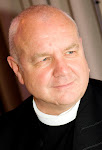Well it’s been another week of depressing and frightening events. And of course the terrible deaths of the 200 in Mumbai have eclipsed the news of violence in the Congo and Zimbabwe and Orissa and Thailand and Iraq and Nigeria and Somalia and so the list goes on.
And like the prophet Isaiah, and men and women of faith throughout the centuries, we cry: “O that you would tear open the heavens and come down!”
Why doesn’t God do something!
Christians have moved in two opposite directions in trying to answer the question: why doesn’t God do something.
At one extreme there is a theology which sees God as the Grand Designer who created the universe like some huge clockwork mechanism, wound it up, and then retired to see how the next few billion years unfolded.
William Paley popularised this in the 18th century in his book on Natural Theology. If you had never seen a watch, he argued, and found one, you would assume that it had both an intelligent designer and a purpose.
The universe is much more complex than a watch and it too, he argued, must therefore have a designer and purpose.
Richard Dawkins partially refuted this argument in his early book The Blind Watchmaker.
But a by-product of this whole line of reasoning that goes back to the Greeks, Thomas Aquinas, and the Deists among the 17th century Anglicans, is the notion that God is incapable of intervening in his creation. That would somehow be breaking his own rules.
Then there is the other extreme view about God’s role in human affairs. God is forever tinkering with the mechanism – a little fine tuning here, a replacement cog there, the occasional rethink about how the whole thing is going – perhaps I don’t want a clock, maybe I want a mechanical jack-in-the-box!
The trouble with both these extreme views is that they do not take into account either the complexity of God, or the complexity of the universe.
Another model more consonant with Scripture and our experience of life, the universe and everything, is the relational model.
God is bound up with the universe he created in a similar way to how we are bound up in our network of family and friends.
Genesis paints the picture of God in relationship with his human beings, made in his image, walking in the garden with them in the cool of the day.
And then, things go wrong. And relationships between the humans, and their relationship to the Creator, become far more complex.
But then so does God’s relationship with the whole universe become more complex.
We also know now that although the cosmos is in many respects like some vast mechanism, it nevertheless has some bewildering characteristics.
Quantum mechanics means it is full of strangeness, uncertainty and unpredictability.
Well where does all this leave us? It leaves us with the joys and pains of living in relationship.
In our prayers, we of course express to God our frustration that he doesn’t act, that he doesn’t rend the heavens and come down. We tell him what we want to happen in the world. We bring our sorrows and anger and hopes and fears.
And do we expect him to turn up in Zimbabwe and give that Mr Mugabe a talking to? (A lightening bolt would do Lord!) No! Of course not.
Or do we expect those cancer cells to suddenly disappear from our loved one’s body? Sadly, no.
But we know that the world is a much stranger place than we can imagine, and that wars cease, dictators are deposed, and that cancer sometimes does go away.
And so we talk to God, not to try and persuade him to do something, but to express our dependency on him to make some sense of it all; and of course, because we wish he would do something!
The Scripture themes in advent are generally dark and bleak, an opportunity to take a long hard look at life red in tooth and claw, but always against the background that ‘Christmas is coming’. God will tear open the heavens and come down.
He will be born among us, the strangest creature in all the universe. ‘God contracted to a span, inexplicably made man’.
And somehow, this is enough to break through the sadness that all these injustices bring to our life. We know that God knows, and that he meets us both as God and as one of us; he meets us here in the mystery of the mass, and in one another.
There’s a poem by Sheena Pugh which expresses this advent hope of waiting and watching through all the changing scenes of life. It’s called Sometimes.
Sometimes
Sometimes things don’t go, after all,
from bad to worse. Some years, muscadel
faces down frost; green thrives; the crops don’t fail,
sometimes a man aims high, and all goes well.
A people sometimes will step back from war;
elect an honest man; decide they care
enough, that they can’t leave some stranger poor.
Some men become what they were born for.
Sometimes our best efforts do not go
amiss; sometimes we do as we meant to.
The sun will sometimes melt a field of sorrow
that seemed hard frozen; may it happen for you.
Sheena Pugh (b.1950)
“O that you would tear open the heavens and come down.” Isaiah 61.1
